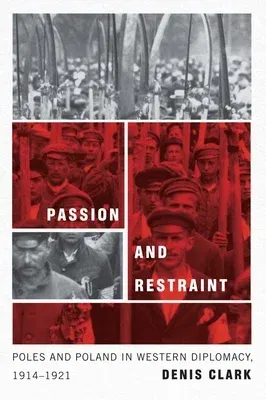Much of today's international order can be traced to the
experimentations with governance that occurred in central Europe
immediately after World War I. And though Western governments did not
bring about the creation of Poland on their own or determine all of its
eventual borders, their attempts to do so left many lingering grudges
and made the years immediately following the war a crucial period in
Polish and international history. Passion and Restraint examines how
British, French, and American foreign policymakers interacted with Poles
and the idea of an independent Poland during this period. Western
policymakers knew little about Poland in 1914, but by war's end they
were drawing the new country's borders, sending humanitarian aid, and
imposing minority protections. Attitudes regarding national character
and emotional restraint were central, intertwined themes in British,
French, and American diplomacy during this period of Polish rebirth, and
policymakers' opinions of national character evolved based on personal
experiences, political conditions, and dominant understandings of the
Polish people in the early twentieth century. Amid these changing
attitudes, policymakers emphasized the necessity of Polish emotional
restraint. Demonstrating how emotions and stereotypes were integral to
diplomatic decision-making, Passion and Restraint brings attention to
these often-overlooked historical factors, advancing a new lens for the
study of Polish, European, and international history.

